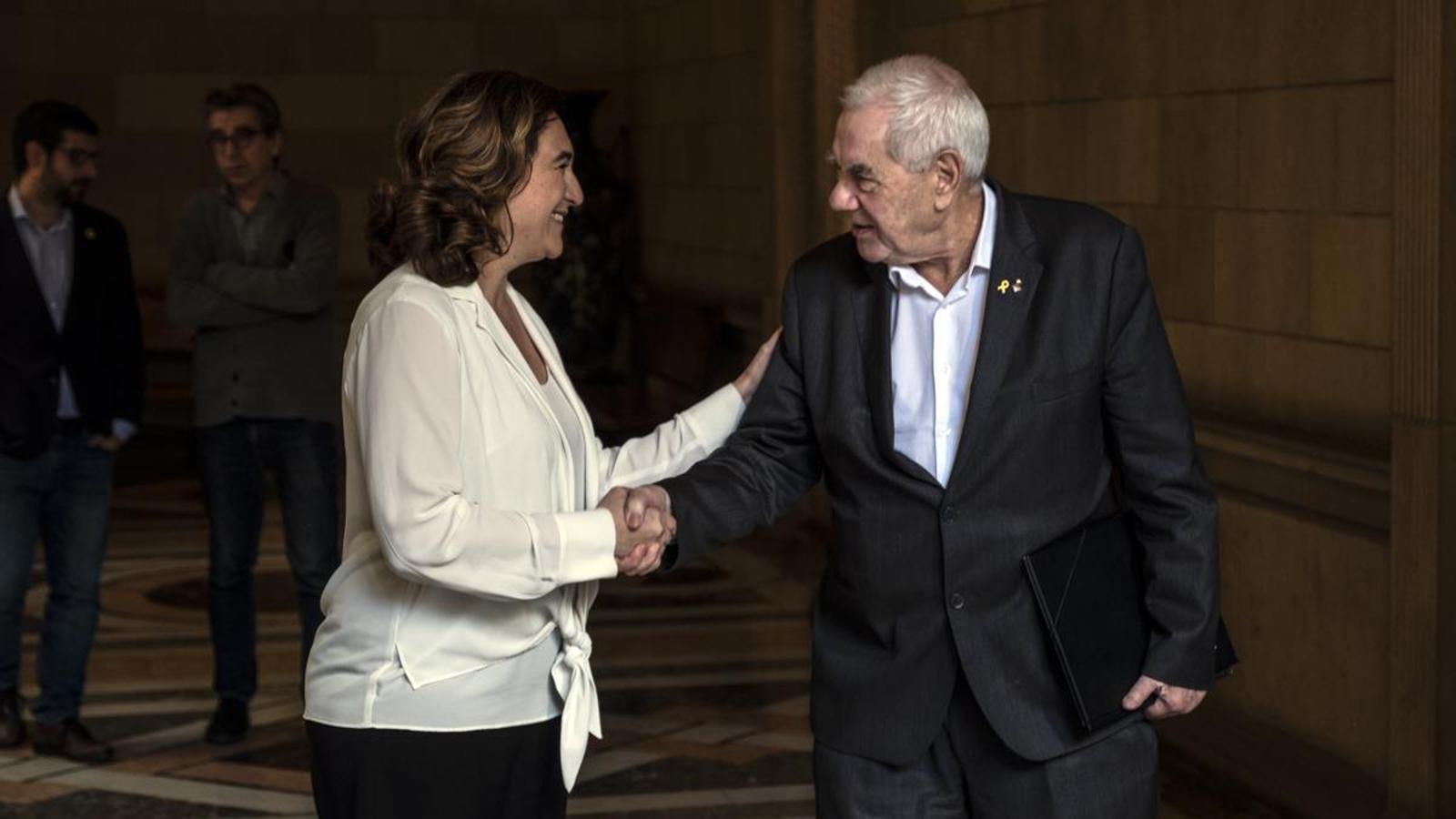En Comú and ERC clash over spying on Barcelona councillors
Maragall accuses Colau of being an "indirect beneficiary" of espionage and the mayor demands a rectification


BarcelonaIn the last years relations between ERC and En Comú have been characterised by their ups and downs, although, taking stock, there have been outstanding moments of understanding. The two most important were the deals for the 2020 and 2022 budgets. Now relations have once again turned sour as a result of political espionage, especially after this weekend La Vanguardia published that the Spanish National Intelligence Centre (CNI) had spied on negotiations for the Barcelona mayoralty. The mayor and En Comú leader Ada Colau demanded a "sincere rectification" from Maragall for having accused her of "complicity" with the CNI. Maragall denies having done so, but has assured the mayor was an "indirect beneficiary" of the espionage.
The controversy began on Sunday. Maragall made numerous statements on the subject, claiming the CNI had played a key role in Colau's successful bid to stay on as mayor. Although Maragall came first, Colau obtained support from other parties, allowing her to be re-elected. "To maintain power anything goes, even the help of the CNI," he said. This Monday Maragall assured that he has never made this link between Colau and the intelligence services: "I have never said it nor do I think it". He claimed that the CNI's role was key for him not to be mayor. Therefore, his conclusion is that the PSC was "a direct beneficiary" and En Comú are "indirect" beneficiaries, since both parties ended up governing together with Valls' votes.
En Comú and the PSC have come out in a flurry to criticise Maragall, to the point the confrontation has left the conflict over the espionage itself in the background. Colau criticised Maragall over his choice of words and said it hurt that they came from a "representative of a left-wing party and a colleague at the City Council". Even Spanish Universities Minister Joan Subirats has spoken on the issue: he said that he finds Maragall's statements "unheard of" and asked for "calm". The PSC has expressly requested that Catalan president Pere Aragonès, as national coordinator of ERC, disavow Maragall and "make him rectify". "You cannot make unfounded accusations," said the party's deputy first secretary, Lluïsa Moret, Marc Toro reports.
It is still too early to know what impact this matter will have on future relations between ERC and En Comú. Both parties are also trying to reach an agreement for the use of Catalan in schools, but so far they have shown to be able to separate both topics and have not let Catalangate interfere. Another big pact they could tackle would be a budget agreement for 2023 –both at the Generalitat and the City Council– but this was already a rather remote option before the conflict with espionage. Local and Spanish elections will be held in 2023 and neither party wants to show too cosy a relationship in the run-up to the campaign.
Council debate
After these statements, JxCat has proposed an extraordinary Council session to deal with the accusations. Later, at a press conference, party spokesman Josep Rius demanded explanations from Colau and said that this case leaves her "wrong-footed". "The first time she was elected to the mayor's office she benefited from a dirty war against Xavier Trias; now there is the suspicion that she got a second term thanks to a state operation", he said, reports Anna Mascaró. To force this council session 11 councillors are needed and, therefore, ERC's support is essential, but Maragall has not yet explained what they will do. He believes that "there are reasons" to bring the council meeting forward, but recalled that a session on espionage was already held a few days ago, albeit before it was known that the City Council was also affected.
"Crisis of democracy"
Further afield, Ron Deibert, director of Citizen Lab (which discovered Catalan pro-independence leaders had been spied on) spoke to The Guardian. He said the case has caused a "crisis of democracy" in Spain, and that the dismissal of the head of the secret services, Paz Esteban, does not resolve key questions about the controversy, such as "who bought the spyware, who authorised it and who justified persecuting people who are clearly not legitimate targets by any reasonable international standard". Deibert says that if the Spanish government's intention is to "wait for the problem to go away", it does not seem "adequate" to him.
